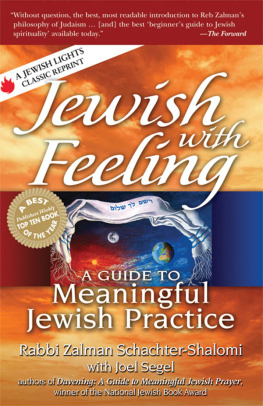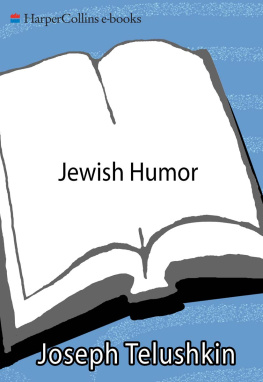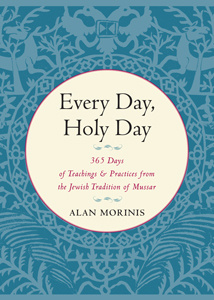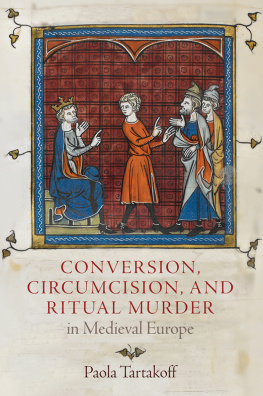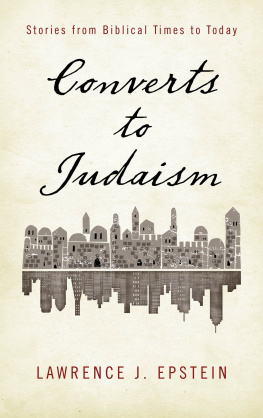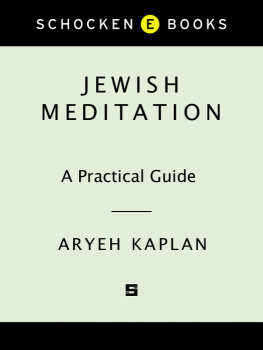Acknowledgments
Becoming Jewish: The Challenges, Rewards, and Paths to Conversion evolved to give you (the convert) a gutsy guide to enter the tribe. It outlines the many paths to Judaism so you can avoid mismatched expectations and instead identify the denomination that best suits your life. You wouldnt choose a partner with tentacles and fins, so why bank on a movement thats as foreign to you as intergalactic space travel? Remember, each path is lined with plenty of challah, holidays, community, and God, so you cant go wrong as long as the level of observance works for you.
First, a world of thanks goes to our outstanding literary agent, Linda Konner, who connected us from the start. I cant say enough about her foresight, thoughtfulness, and expertise. Thank you, Linda, for doing what you do so well.
Our book would not be what it is today without invaluable insights from individuals who have touched our lives in many ways. Accolades go to Bob Saget for writing such a brilliant foreword. Many thanks also go to comedian Yisrael Campbell for allowing us to highlight one of his hard-earned conversion insights. Special thanks go to Rabbi Steven Morgan, Cantor Diane Dorf, and Rabbi Brian Strauss with Congregation Beth Yeshurun; Rabbi Richard Steinberg with Congregation Shir Ha-Maa lot; Rabbi Dov Fischer with Young Israel; and Rabbi Drew Kaplan with Beach Hillel.
Loads of thanks go to editor, Sarah Stanton, and editorial assistant Jin Yu with Rowman & Littlefield, and everyone else contributing their time or talent to this labor of love. Their attention to detail and enthusiastic support and ideas made our book even better.
Heartfelt appreciation goes to Adam Hanin for spending countless hours reviewing chapters, generating illustrations, creating graphs, providing translations, and cheering us on every step of the way.
A warm embrace to Didi Carr Reuben for her constant love and support.
Most of all, our book would not be the same without the courageous converts who shared their personal stories. While we vowed to protect their anonymity and thanked them privately, they know who they are. They were humble, forthcoming, and generous enough to let others travel their path and see how they took the drivers seat. Their experiences are rich, compelling, and unique, and shed light on the multitude of issues that tug at the hearts of converts everywhere.
Appendix 1
Thirty-Nine Types of Work Forbidden
on Shabbat
Carrying
Burning
Extinguishing
Finishing
Writing
Erasing
Cooking
Washing
Sewing
Tearing
Knotting
Untying
Shaping
Plowing
Planting
Reaping
Harvesting
Threshing
Winnowing
Selecting
Sifting
Grinding
Kneading
Combing
Spinning
Dyeing
Chain-stitching
Warping
Weaving
Unraveling
Building
Demolishing
Trapping
Shearing
Slaughtering
Skinning
Tanning
Smoothing
Marking
Appendix 2
Sample Conversion Courses
ORTHODOX
Note: Unless otherwise stated, the convert is required to master all of the following areas. The tutor should sign and date the appropriate sections when the study of that unit has been completed.
- Blessings
Required Text: The Laws of Berachos (Artscroll)
a. Various blessings on foods
b. Beracha Acharona
c. Various blessings, such as thunder, oceans, etc. - Taharat Hamishpacha
Tutor will choose preferred text. - Shabbat and Yom Tov
Required Texts: The Shabbos Kitchen and The 39 Melachos (Chait)
Illustrated Guide to Halacha
a. Concepts and examples of 39 Melachot
b. DOraissa and DRabbanan
c. Categories of Muktza
d. Cooking and warming foods
e. Candlelighting
f. When cooking is permitted on Yom Tov
g. Kiddush, Havdalah, Lechem Mishnah, etc. - Tefillot
Required Text: Artscroll Siddur (or an equivalent English-language siddur)
The World of Prayer
a. Requirements
b. Priorities
c. When and in what manner talking is prohibited
d. Knowing your way around the siddur
e. Additions and omissions on special occasions
f. Understanding and ability to read basic tefillot including: - All of the Amidot
- Shma Yisroel (all paragraphs)
- Birkat Hamazon
- Al Hamichya
- Borei Nefashot
- Hallel
- Shabbat services (particularly the structure of the services and the meaning of major prayers)
- A. For Men
a. Blessings on the Torah
b. Kiddush and Havdalah
c. Leading Birkat Hamazon
d. Tzitzit and Tefillin
B. For Women:
Required Text: Hallichos Bas Yisroel (Feldheim)
a. Haircovering
b. General Tzniut (kol isha, etc.)
c. Modesty in dress - The Jewish Calendar
Required Text: Book of Our Heritage (Feldheim)
a. Knowledge of all the Yomim Tovim and fast days, including: - Meaning of the day
- All pertinent practical halachot
- Kashrut
Required Text: The Laws of Kashrus (Wagshall)
a. Understanding of kosher and glatt kosher meats
b. Understanding of kosher cheese and cholov yisrael
c. Separation of meat and milk and waiting in between
d. Common kitchen shailot
e. Kashering
f. Tevillat Keilim
g. Taking challah
h. Bugs
i. Meat and fish
j. Kosher fish
k. Starn Yeinum
l. Bishul Akum - Hashkafa
a. Study of the 13 Ikarim of the Rambam
b. Mishneh Torah- Yesodei Ha Torah, perek 1 and part of 2
- Hilchos Teshuva 2, 3, and 5
- Hilchos Avodah Zarah perek 1
- Hilchos Melachim perek 11 and 12
We also recommend that you consider teaching select portions from works such as the Kuzari, Tanya, or other works of Chasidus and hashkafa of your choice. - Torah Knowledge
Suggested Text: Artscroll Chumash
The student is encouraged to attend classes as often as possible. The tutor should make a point of briefly mentioning the Parshat Hashavua on a weekly basis and assigning reading of the Parsha as homework. - Hebrew
The RCC Gerut program assumes that every candidate will make a maximum effort to acquire Hebrew reading skills and will be able to (a) read the most basic prayers such as the Shema and Amidah in Hebrew and (b) follow Shabbat synagogue services in Hebrew. Conversion candidates will be tested on their Hebrew. - Jewish History
Overview of Jewish History Curriculum: Crash Course in Jewish History by Rabbi Berel Wein. Available on tape or CD.
This syllabus focuses primarily on the halachot that the convert must master in detail. As far as other areas of Jewish knowledge are concerned, the RCCs policy is that the candidate for conversion must be knowledgeable in all matters of daily life and sufficiently aware of when and how to ask a competent Rav when unusual circumstances arise. - Torah Ethics
Study of some basic concepts of Jewish ethics and values
a. Pirkei Avos, perek 3 study and discussion of the text
b. Orchos Tzadikim, introduction
c. Mesilas Yesharim, introduction and perakim 1 and 2
We also recommend assigning any of the three of Rabbi Baruch Chaits illustrated series on midot, which are delightfully engaging for young and old alike. The pictures and story line are a superb platform for study and discussion of ethics and interpersonal relationships according to Torah.


